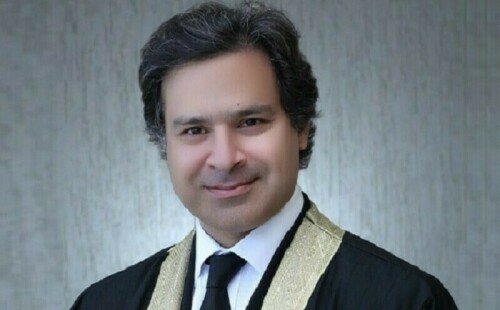ISLAMABAD: The army claimed on Monday to have used for the first time the indigenously developed armed drone Burraq, killing three suspected terrorists in North Waziristan’s Shawal Valley.
“First ever use of Pakistan made Burraq Drone today. Hit a terrorist compound in Shawal Valley killing three high-profile terrorists,” military spokesman Asim Bajwa tweeted.
Although he said more details would follow, the ISPR did not provide any further information about the terrorists killed.
The army began a ground offensive in the valley last month.
Burraq, produced by the Strategic Plans Division in collaboration with the National Development Complex, was tested on March 13 and also displayed at the March 23 military parade.
It is believed that by the time it was officially unveiled during a test in Tilla Ranges, the military had already raised a squadron of the unmanned aerial vehicles (UAVs).
Burraq is armed with laser-guided Barq missile. Its specifications are not known, but from pictures released by the ISPR in the past it is believed to be very similar to China’s CH-3 drone. The military, nevertheless, insists that Burraq’s development was completely an indigenous effort.
Shortly after the test in March, Gen Bajwa had said in an interview that the armed drone would be “in operation soon”. He also said the decision about using the drone in counter-terrorism operations would depend upon “the target and the timing”.
Although it is the first time that the use of an armed drone by the military has been reported, the army had been using UAVs for surveillance for some time.
CONTROVERSY: Notwithstanding its opposition to the US drone attacks in the area, that have been happening since 2004, for causing collateral damage, Pakistan had long aspired to have armed drones for bolstering its counter-terrorism capacity. The other reason for opposing the US strikes was the question of sovereignty.
Pakistan has all along consistently maintained that drone strikes are counter-productive, entail loss of innocent civilian lives and have human rights and humanitarian implications.
The military spokesman was not available for comments on how different was the Pakistani drone operation from the American strikes vis-a-vis the issue of collateral damage and human rights violations.
UN Secretary General Ban Ki-Moon, during a visit to Pakistan in August 2013, opposed the use of armed drones and urged the operating countries to strictly adhere to the relevant provisions of international laws regulating UAVs.
Published in Dawn, September 8th, 2015
On a mobile phone? Get the Dawn Mobile App: Apple Store | Google Play















































Dear visitor, the comments section is undergoing an overhaul and will return soon.